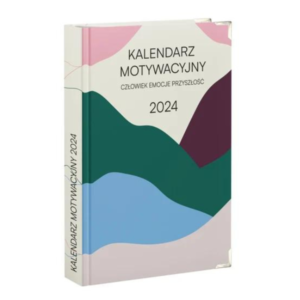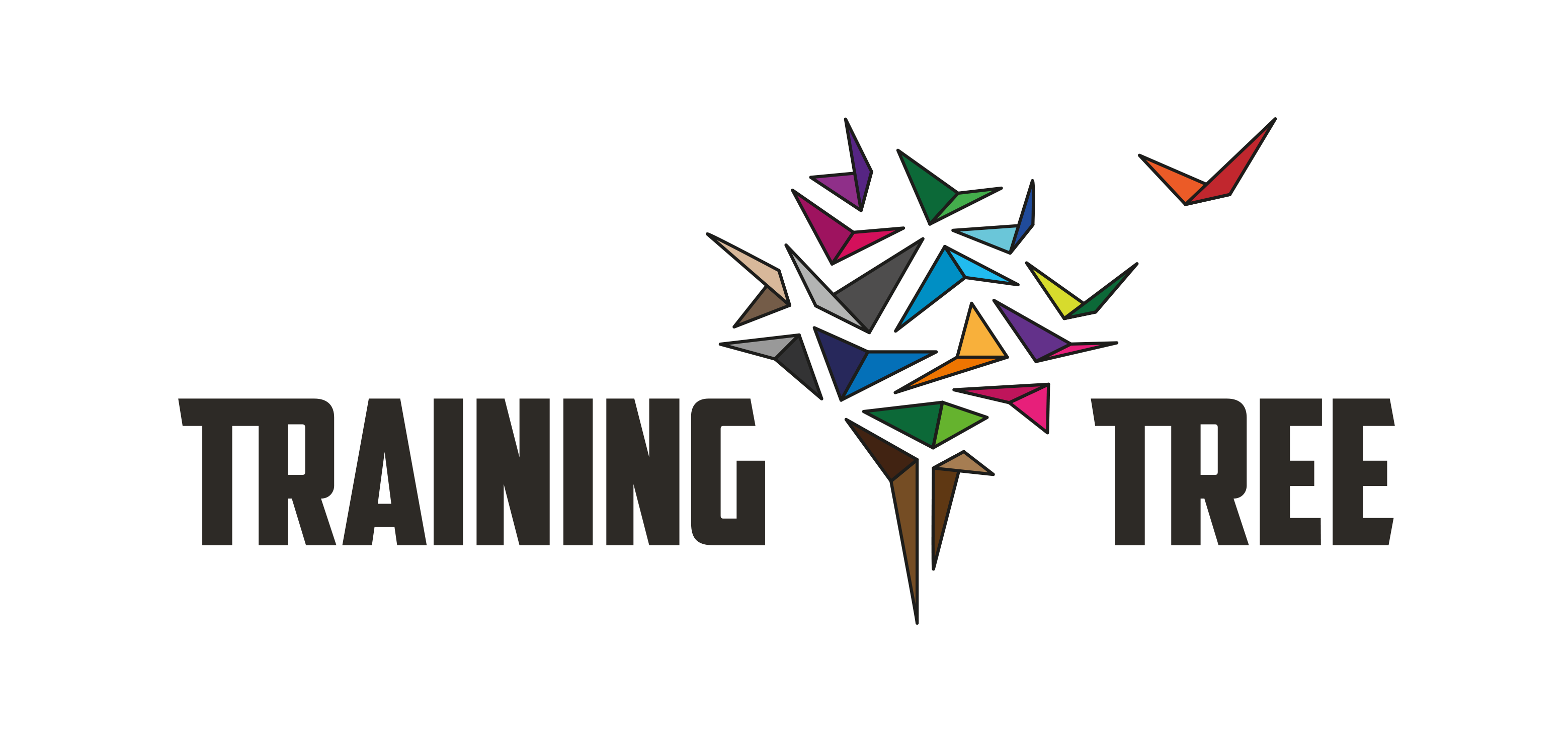Leadership Espresso
- In Aktualności

Zapraszamy do zapoznania się z ofertą spotkań Leadership Espresso, których celem jest wyposażenie uczestników i uczestniczek w najważniejsze kompetencje liderskie. Każde spotkanie proponujemy przeprowadzić w formule warsztatowej, mocno skupiającej się na praktycznym doskonaleniu danej kompetencji lidera_rki z elementami coachingu grupowego (dyskusji, Q&A oraz pracy na postawach) oraz power speechu. Czas trwania: 2h. Forma: stacjonarna lub online. Poniżej przedstawiamy propozycję cyklu spotkań (może zostać dostosowany do potrzeb Klienta).
Więcej szczegółów TUTAJ.
- Share:
You may also like

Nasz nowy Kalendarz Motywacyjny na rok 2024 już dostępny w EMPIKu
- 16 listopada 2023
- by Patrycja
- in Aktualności

Szczęśliwego Nowego Roku!

Wesołych Świąt!

Podcast Mind&Heart
Leadership Espresso

MEETING 1: CULTURE OF EFFECTIVE FEEDBACK
The word “feedback” contains the word “feed” – nourishment. Because good feedback is information on which we can grow and develop, and a feedback-free diet in business leads to nothing healthy. So how to effectively provide feedback so that instead of creating an impression of stoning, we leave behind curiosity, a desire for development, and motivation? Perhaps, instead of feedback, should we use a feedforward approach today? How to cultivate openness to feedback in ourselves and our colleagues?
What defense mechanisms block us from receiving it, and how to deal with them, and most importantly, how to be a leader not only open but also asking for feedback? We’ll talk about this during our meeting.
MEETING 2: MONITORING AND MANAGEMENT THROUGH CONSEQUENCES
After the feedback-related meeting, the natural next step is to address another leadership skill, which is monitoring and enforcement. During the meeting, we will seek answers to the following questions: What to do when feedback is not effective? How to discuss consequences without turning them into threats or punishments?
What consequences can a manager use? How to monitor without controlling and how to do it in hybrid work settings.
MEETING 3: COACHING MANAGEMENT
Leadership based on coaching and mentoring tools is a higher level of leadership initiation, which relies on managing deeper motivators than just rewards and consequences. Especially when external enforcement tools are lacking, the focus shifts to eliciting internal motivation – working with passion, predispositions, development, and values.
After all, isn’t this how true leadership should look like? During the meeting, participants will learn the principles of coaching management and the T-GROW method for conducting managerial conversations.
MEETING 4: SITUATIONAL LEADERSHIP
In today’s times, the effectiveness of leadership relies not only on skillfully recognizing an employee’s personality and abilities but also on effectively adapting one’s management style to the rapidly changing situation. How to do it effectively? Ken Blanchard and his Situational Leadership come to our aid.
MEETING 5: TOUGH EMPATHY IN LEADERSHIP®
Although empathy may still seem to some of us as a trait unrelated to business, whether we like it or not, it is now a necessary and more business-related skill than ever. The new reality increasingly shows that today, we need leaders who are not only focused on success but are also capable of dealing with their own emotions and those of their subordinates.
The challenge for some of us is how to react to the problems of our people. When illness, difficult situations, crises, etc., arise, we may not know which areas to address and which to avoid. When and how to intervene, and when to step back. How to combine understanding and empathy with enforcing a business contract and goal-oriented mindset. Some of us may start falling into one of the extremes – either becoming thick-skinned, cold, and solely focused on results, or becoming soft and unable to set boundaries.
So, how do we find a middle ground and learn leadership empathy combined with toughness? We will discuss this during the meeting.
MEETING 6: THE ART OF CONFLICT RESOLUTION
Conflict (from Latin conflictus – collision) is otherwise defined as inconsistency, conflict of interests, views, dispute, or discord. For many of us, it may be the cause of broken friendships, unresolved matters, tension between us and others, such as a client. In most cases, when I ask for initial reflections on this term during business workshops, they tend to be negative. However, conflict itself does not have to be inherently bad. When I disagree with someone, I have the opportunity to understand their point of view, learn more, or even change my attitude.
During the next meeting, we will focus on conflict. We will discuss styles of dispute resolution that a leader can adopt and ways to transform conflict into a constructive, out-of-the-box solution.
MEETING 7: LEADERSHIP MINDSET
In professional sports, at a certain level, besides endurance and physical fitness, the greatest importance in winning is attributed to the strong mindset of the athlete. Similarly, in leadership, the mindset of a leader influences how we take risks, how much we believe in ourselves, how we handle stress, or things beyond our control.
During the next Leadership Espresso meeting, we will discuss how to build a strong, resilient, yet agile leadership mindset.
MEETING 8: MANAGING PERSONAL ENERGY AND FATIGUE IN THE ORGANIZATION
Every day can be likened to a long-distance race. We move in slightly different terrain and cover various distances, but most often, to finish the race successfully, we need to satisfy the same basic resources. These resources allow us – or not – to maintain the necessary level of energy required to complete the race with better results. How to prevent work from turning into the leading-to-professional-burnout “rat race”? How to care for energy renewal? How to monitor and positively influence the energy of subordinates?
The training program was inspired by Tony Schwartz’s bestselling book, “The Way We’re Working Isn’t Working.” The workshop is based on the thesis that time, which we often “lack,” is a non-renewable resource – whereas energy is. The better we manage it, the more effectively we can function – both professionally and personally. Where to draw it from, how not to waste it senselessly, and how to evoke it in ourselves and in subordinates? You will learn all of this during the meeting.
MEETING 9: FROM MANAGER TO LEADER – ACTION PLAN
According to Alvin Toffler, “The illiterate of the future will not be those who cannot read and write, but those who cannot learn, unlearn, and relearn.” Unlearning and learning have become essential skills for the future. Why? Because the ever-changing reality will invite us to change our thinking and behavior habits. If we fail to do so, we will lag behind.
What competencies should we develop as leaders, and which ones should we discard in the contemporary world? What do trends and the changing world say? How to cultivate new effective habits within ourselves? The final meeting of our series will be a summarizing session. It will also be an opportunity to create your own developmental, leadership action plan.
OTHER MEETING PROPOSALS
During the project, we can add new workshops to the above topics, developed during the project based on gathered and observed needs. Meetings may involve deepening the proposed topics or exploring new areas such as:
- Change Management
- Effective Meeting Facilitation
- Conducting Creative Sessions
- Team Management according to chosen methodologies (e.g., Belbin Team Roles, Insights Discovery, etc.)
- Conducting Developmental Conversations
- Mentoring in Practice
- Nonviolent Communication (NVC) in Leadership
- Self-Management in Time and Priorities for the leader
- Emotions and Stress in Leadership
Trainers
CEO, Coach, Consultant
CEO of TRAINING TREE. Lecturer at the University of Warsaw and the Warsaw University of Technology Business School (MBA). Doctor of Humanities, certified EMCC Coach, Belbin Team Roles® Consultant, Practitioner and Business Practitioner in the Art of NLP.
You might also be interested in

Dowiedz się więcej
Coaching Management Style
Lider buduje potencjał zespołu tak, aby pomimo różnic ludzie wzajemnie się uzupełniali i realizowali wspólne cele.

Dowiedz się więcej
Effective leadership
Zadaniem menedżera jest zatem skuteczne motywowanie z poszanowaniem wolności i unikalności swoich ludzi.
Contact
You may also like

Leadership Espresso
- 9 stycznia 2024
- by Patrycja
- in Aktualności

Nasz nowy Kalendarz Motywacyjny na rok 2024 już dostępny w EMPIKu

Szczęśliwego Nowego Roku!


